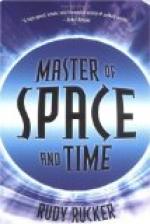Bell returned from Europe to find the affairs of his company in a sorry plight. Only the courage and generalship of Vail kept it in the field at all. Bell was penniless, having failed to establish the telephone abroad, even as Morse before him had failed to secure foreign revenue from his invention. Bell’s health failed him, and as he lay helpless in the hospital his affairs were indeed at a low ebb. At this juncture Francis Blake, of Boston, came forward with an improved transmitter which he offered to the Bell company in exchange for stock. The instrument proved a success and was gladly adopted, proving just what was needed to make possible successful competition with the Western Union.
Prolonged patent litigation followed, and after a bitter legal struggle the Western Union officials became convinced of two things: one, that the Bell company, under Vail’s leadership, would not surrender; second, that Bell was the original inventor of the telephone and that his patent was valid. The Western Union, however, seemed to have strong basis for its claim that the new transmitter of the Bell people was an infringement of Edison’s patent. A compromise was arranged between the contestants by which the two companies divided the business of furnishing communication by wire in the United States. This agreement proved of the greatest benefit to both organizations, and did much to make possible the present development and universal service of both the telephone and telegraph. By the terms of the agreement the Western Union recognized Bell’s patent and agreed to withdraw from the telephone business. The Bell company agreed not to engage in the telegraph business and to take over the Western Union telephone system and apparatus, paying a royalty on all telephone rentals. Experience has demonstrated that the two businesses are not competitive, but supplement each other. It is therefore proper that they should work side by side with mutual understanding.
Success had come at last to the telephone pioneers. Other battles were still to be fought before their position was to be made secure, but from the moment when the Western Union admitted defeat the Bell company was the leader. The stock of the company advanced to a point where Bell, Hubbard, Sanders, and Watson found themselves in the possession of wealth as a reward for their pioneering.
The Western Union had no sooner withdrawn as a competitor of the Bell organization than scores of small, local companies sprang up, all ready to pirate the Bell patent and push the claims of some rival inventor. A very few of them really tried to establish telephone systems, but the majority were organized simply to sell stock to a gullible public. They stirred up a continuous turmoil, and made much trouble for the larger company, though their patent claims were persistently defeated in the courts.




